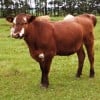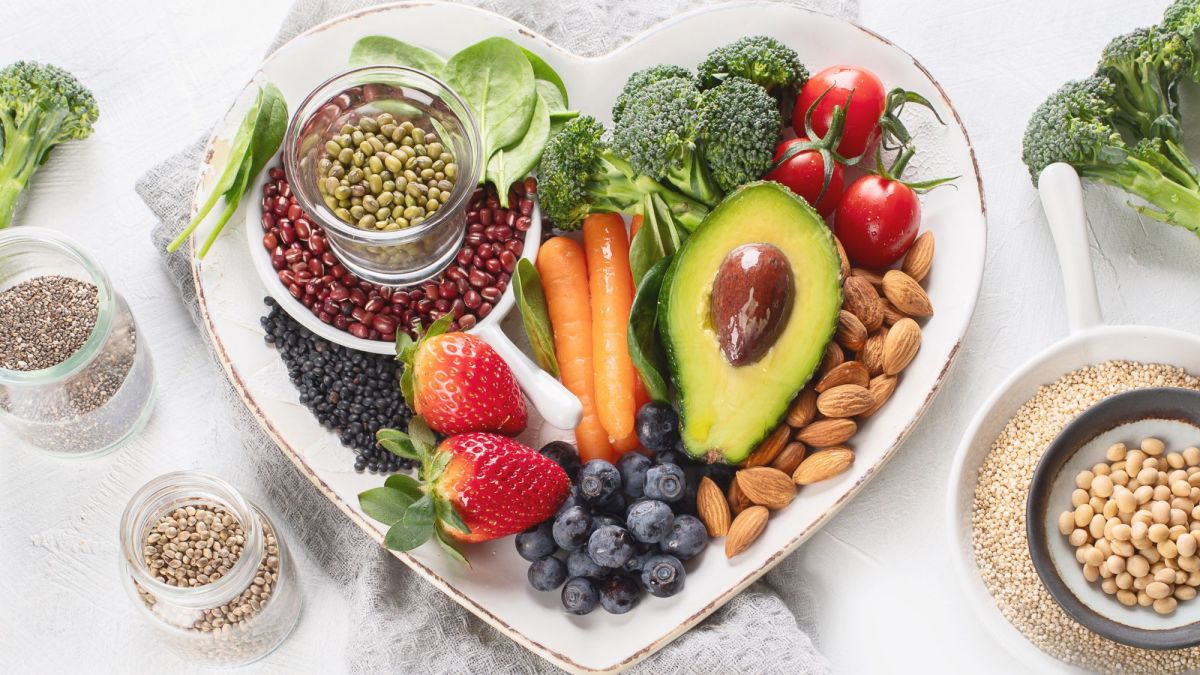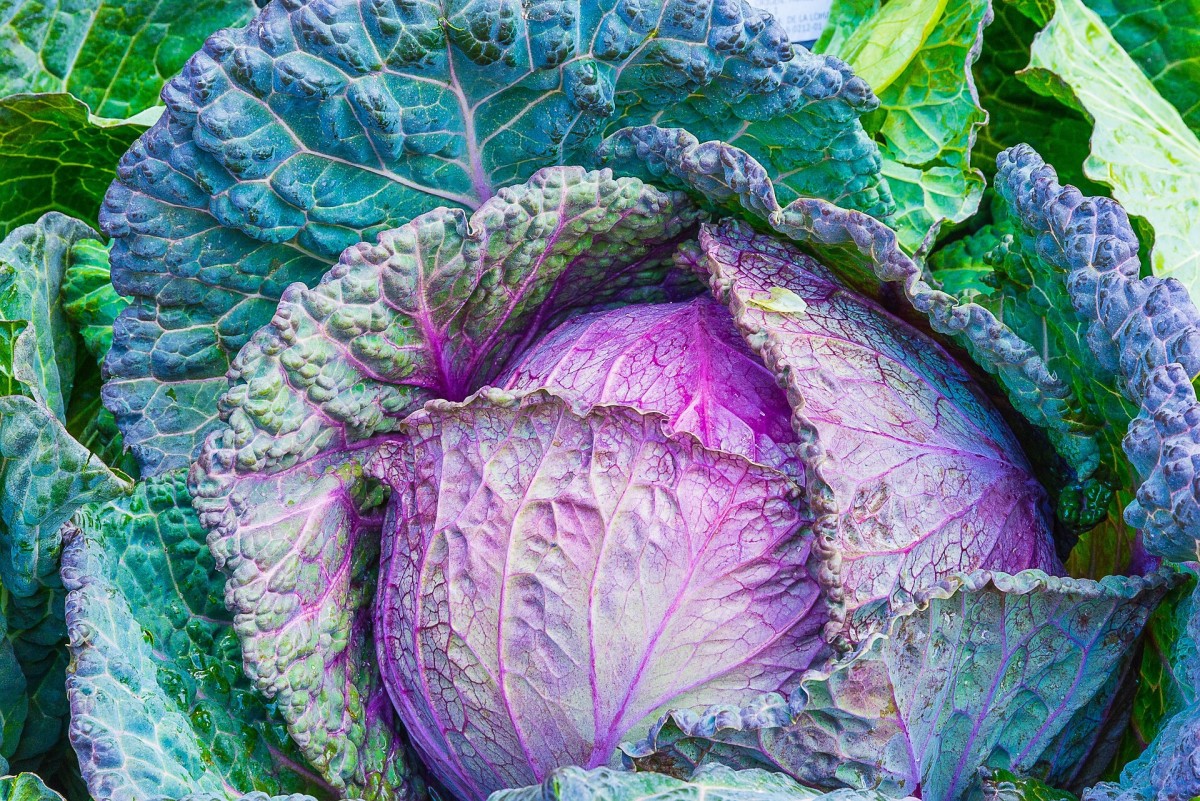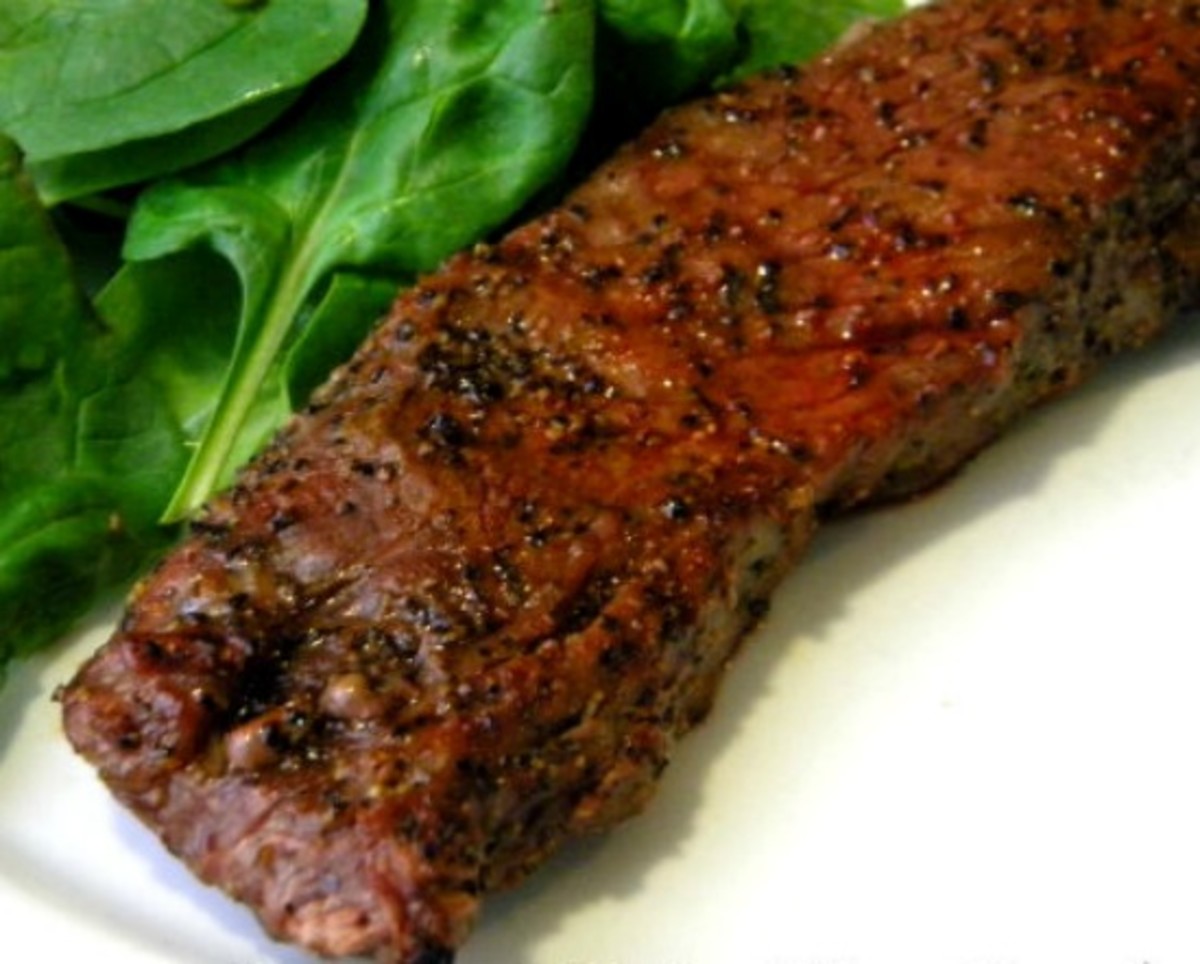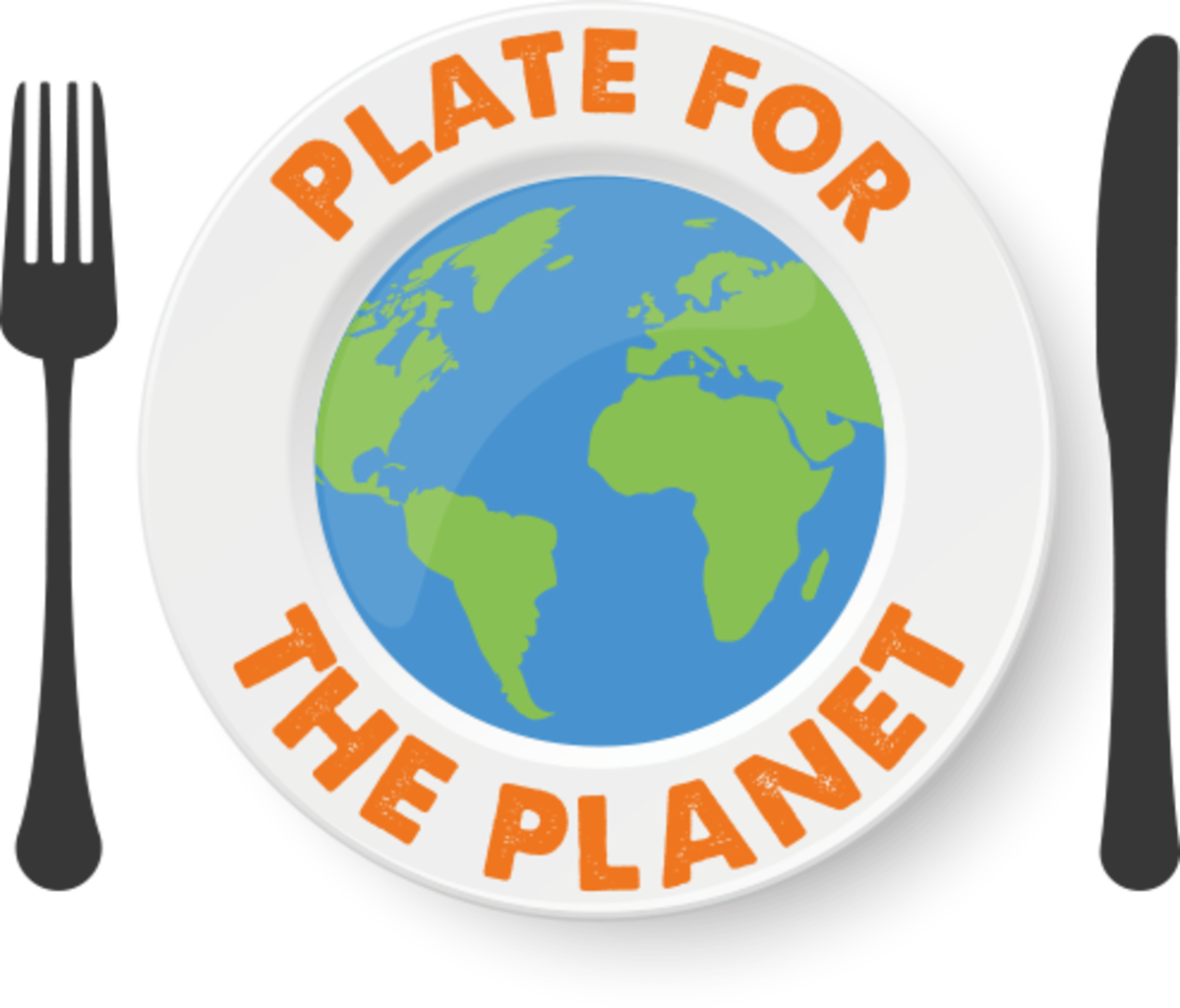The Vegan vs. Omnivore Debate Part 4
Digestive Anatomical Differences
Without trying to get too "sciency" on you, there are several issues in this second-last part of the Debate that I would like to address. These include digestive anatomical differences and health between humans and true herbivores. First though, because I may come across as biased about the facts of being a true omnivore and not a herbivore, I would like to say this: We humans are true omnivores. And many vegans get up on their high-horse about that. I will tell you why and explain the facts in comparisons with the true herbivores that exist today.
Stomach Anatomy
We humans are monogastrics. This means that we have a simple stomach designed to break down amino acids, starch and carbohydrates more efficiently than fibrous material found in grains and other plant material. Vegans argue that the length of time meat is digested in our stomachs versus vegetables and fruit--meat takes longer to digest than fruit/vegetables do--means that our stomachs are less efficient at digesting meat. Now let me get on my science chair for a minute here: This is false. Plant material containing fibre, cellulose and hemi-cellulose cannot be efficiently broken down by the peptides and other enzymes our stomachs secrete that makes digesting meat and carbohydrates more efficient. Cows, on the other hand, are more efficient at digesting plant matter because they have multiple chambers in their stomach, and they have microbes in their rumen that enables the break down of fiber and cellulose from plant tissue that is tougher than the stuff we humans eat or are capable of eating. This material, for us, only acts as a "gut filler" making us feel full, yet we are not really getting much nutrition out of it. Plant material is said to pass through more slowly than meat. This is also false. Plant material actually passes through much faster than meat because, as mentioned before, not much nutrition can be gleaned from such foodstuffs. It's a different story with animal products. Meat is in our stomach "so long" because the stomach can efficiently digest it enough that more nutrients are gleaned from this food source than with plants. The same thing goes for carbohydrate and starch-type foods. The length of digestion in our stomach is really similar to that of other non-human omnivores and carnivores. Because of that, humans are not herbivores.
Two very obvious anatomical differences between the true herbivores and us omnivorous humans exist: Ruminant stomachs like cattle, sheep and goats, and large cecums like in horses and rabbits. We humans have neither of these. We do not have a four-chambered stomach designed to efficiently digest coarse plant matter like grass, leaves, stems and twigs off of plants. We are monogastrics, simple-stomached animals like pigs, bears, raccoons, dogs, and cats. We do not have a huge cecum designed to digest and ferment forage like horses and rabbits have. (Even ruminants like cows have a functioning cecum!) All we have is a tiny, useless piece of flesh attached to the beginning of our large intestine called the appendix. And the appendix does absolutely nothing for us, except, on occasion, it gives some lucky few of us appendicitis, resulting in having it surgically removed. (Like we needed it in the first place!)
Intestinal Anatomy
Carnivores have shorter intestinal tracts because they don't need so much length to digest the meat they eat. Most of the food they eat is digested and nutrients absorbed in the stomach and the first part of the small intestine (duodenum). Omnivores have a bit longer small intestines because they are also accounting for the plant matter in their diet. Herbivores are longer yet because of the plant-matter diet they consume. We humans tend to be in between the small intestinal length of omnivores and herbivores. And this is because we do tend to eat more plant matter than meat, though we still eat meat (at least most of us do). Many vegans believe that the longer intestinal tract than most omnivores is what sets us apart from "true" omnivores, and is what makes us "herbivores." But looking at the intestinal tract by itself is not looking at the big picture. As I mentioned above, plant matter cannot be efficiently digested in our simple stomachs. It does move slower through our small intestine, but that's because (again) of the many cellulose- and fibrous-tissue that is difficult to get through to extract many nutrients.
Teeth and Use of Tools
The shape and size of our teeth is of little importance compared to the rest of our digestive system. However vegans claim that our flat molars and larger incisors are indicators of the reason why humans should be herbivores and not omnivores nor carnivores. And yet, why do we cook our meat instead of eating it raw? Why have we found that fire is good to make raw meat more tender and easier to chew and invented tools like forks, knives, spears, bows & arrows and then guns? What I see, aside from trying to kill each other, is that these tools were found to help us hunt for meat, cut it up and cook it for us to eat. When the neanderthals were around, they had larger canines than we do now, but that was because they were still living like many omnivorous animals do. They ate meat, as well as plants, but did not (yet) have the inventive skills that Homo sapiens later developed. Soon, however, after the neanderthals did tools get invented to help hunt for big game for the large families that existed. And we evolved from there. Our canines got smaller because we were eating more cooked meat, and didn't need to have the larger fangs that big cats, bears and wolves do. Our molars got flatter because of the cooked-meat diet, as well as the infusion of fruits, nuts and veggies. And since then, we invented agriculture to make getting our food more easier for us, domesticating animals and plants to grow in what are now stalls, pastures and fields.
Health Issues and Today's Societal Laziness
It is a widely-spread claim by vegans and vegetarians alike that meat and dairy products are unhealthy for you. This is only a claim, backed up by falsehoods that have no relevancy whatsoever. They blame meat and dairy for the increased obesity and health problem rates that have come about these past few decades. And what sort of evidence do they bring to the table to back up their statements? The following:
- Higher rates of obesity and cardiovascular disease
- Meat and dairy have higher levels of saturated fats, cholestrol, and animal protein
- Increases blood cholestrol levels, blood pressure, hypertension, type 2 diabetes, and prostate and colon cancer
- Eating vegetables is better for the environment because it uses far fewer resources and causes less environmental damage than an a meat-based diet. (Covered later)
The REAL Truth from the Claims
Health Issues of Today's Society
Much of the obesity, cardiovascular disease and cholestrol problems we see today is not really linked to animal protein in itself. It is more due to the increase intake of far more unhealthier foods like processed cheese, potatoe chips, candy, cookies, and other foods high in carbohydrates and sugar. Sucrose, a type of sugar that is commonly used in candy and other processed goodies, is far more unhealthier than healthier sugars like fructose, glucose and lactose. Kids who have obesity issues tend to gorge themselves on diets high in carbohydrates and sugar and fast food, not getting enough healthier dairy, fruit, vegetable or meat products every day instead. Also, our portions have doubled in size from the past as well. The size of meat serving is a big problem, as you see in the Big Macs or the Double Cheeseburger. And these burgers, the groud beef used in them, comes from grain-fed cows and corn. The meat you see in your grocery stores are also from grain-fed, intensly managed animals. Grain-fed cattle are unhealthy creatures, and it has reflected that in the health problems in humans from eating grain-fed beef. Essentially, convinient foods are our downfall. Corn has made our foods convinient, since corn is found in virtually everything we eat, except for fruit and vegetables. The fact that today's society mostly comprises of lazy, computer and TV-dwelling people is what initiated modern conveniences, including the fast food and pre-packaged food we eat.
Much of the health problems we also face is als linked to inadequate excersize and physical activity. Computers, television, satellite television, video games, and other electronics are what makes us couch potatoes. Lack of physical activity is never healthy for anybody, and that also reflects on what and how we eat.
Meat isn't the main cause for health problems and cancer in today's population. It's us. A growing population demands more food to be produced sooner, and this is why we are seeing animals being factory farmed like they are, and fruit and vegetables being produced in mass quantities. It's the fact of Quantity over Quality. And that is also our downfall.
Health Issues of a Vegan Diet
A vegan diet may provide more servings of fruit and vegetables every day, but it also lacks in serveral important nutrients that are found in animal products: iron, vitamin B12, and omega 3 fatty acids. All nutrients are vital to human health and nutrition, and if not supplemented in a vegan diet, will lead to more problems than a person who follows a healthy, balanced diet of fruit, vegetables, whole grains, and meat and dairy products.
Vitamin B12 is not found in any plant-based meal including beans and soybeans. Vitamin B12 is found in animal products like eggs, fish, dairy and beef products. In pregnant women, it is essential for the healthy development of fetal neurological system, and also neurological health in people themselves. Unreliable sources for V B12 include Tempeh, seaweed, spirulina, organic produce, soil on unwashed vegetables, and intestinal bacteria.
Iron deficiencies are also common in vegan diets. Iron tends to be less well-absorbed in vegetarian diets than omnivorous diets, and those who exclude all animal-based sources from their diets will need twice as much iron to supplement than non-vegans. Iron deficiencies is a much bigger problem in women than men because of the menstral cycles, lactation and gestational periods they often go through.
Omega 3 fatty acids are also low in vegan diets. This is a much bigger issue for pregnant and breast-feeding women on a strict vegan diet, as a deficiency of this leads to lower birth weights and eye-sight problems in children.
So....
Overall, there is good and bad to each diet we follow. However, I would like to say this: most vegans are partly right about the meat we eat. But I only say partly because many vegans tend to generalize that all meat as bad. But it isn't, especially if we loosen our grip on grain-fed meat and dairy products and instead, buy grass-fed beef and dairy products instead. Grass-fed and naturally raised meat products are, by far, healthier than the TV-dinner diet we are so fixated on. Plus, if we ate less carbohydrate and starchy foods like pizza, potatoe chips and hamburgers, and more fruits and vegetables, we wouldn't have as much problems. And for heaven's sake, get off your butt and go out for a walk or bike ride every day! Or go walk your dog for an hour! You'll certainly feel better afterwards!
